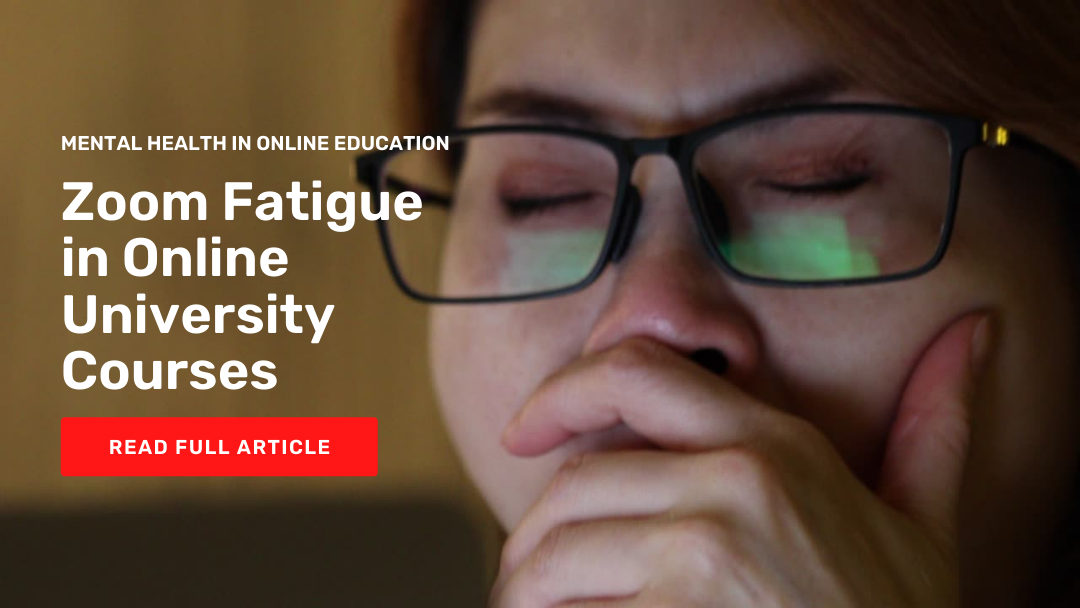Are you and your students struggling with mental health due to online university or college courses?
Well, you’re not alone.
With the pandemic, most students and working adults have experienced or are still experiencing fatigue as they go from one online class or meeting to another.
This new phenomenon has become so common that there is now a proper term for it: Zoom fatigue.
Mental Health in Online Education: Zoom Fatigue in Online College/University Courses
What is Zoom fatigue?
Zoom fatigue is a form of burnout from the constant use of videoconferencing platforms when working or learning online.
Although it is called "Zoom fatigue", it doesn't just apply to that one platform. Zoom fatigue can happen regardless of the videoconferencing platform you use.
The result is the same–you end your day feeling drained.
Causes of Zoom fatigue
There are many reasons why students and teachers get Zoom fatigue, but the most common reasons are:
#1 Anxiety and introversion
If you are introverted or anxious, having constant attention on you is stressful. As it’s harder to blend into the background like it is in offline classes, you have to worry about how you look, what you do, and what you say.
Even people who aren’t anxious or introverted may find it hard to adjust to the constant video calls when their daily human interactions have been significantly reduced due to Covid.
#2 Lack of in-person human interaction
Although we are constantly connecting online, communication through a digital screen and in person are notably different.
Many people are not used to the perpetual interactions online due to their reduced in-person interactions.
On top of that, you also have to learn to read people through the screen. Everyone’s voice and actions may not always be synced, and even the slightest delay can make them seem uninterested or unfriendly.
#3 Physical fatigue
Working and learning from home has its pros, but like all things, it also has its cons.
People usually end up desk-bound and stay in their seats for hours since they eat, work, learn, and relax in the same spot.
When your body starts to get tired, it’s only normal that you mentally start feeling exhausted too
Why Zoom fatigue is dangerous
Zoom fatigue is a serious problem because it doesn’t just make you exhausted, but it also takes a toll on your brain.
Your brain is constantly working hard to read the non-verbal cues through a small screen, which is evidently harder to do digitally than in person.
In real-life group classes, you only have to be 'on' when it's their turn to speak. But online classes demand you to always look and be ready because your video is on throughout.
The stress and mental gymnastics is exacerbated for people who don't live alone as they have to take into consideration possible interruption and embarrassment from other people in their living space.
Symptoms of Zoom fatigue
Here are some of the common symptoms of Zoom fatigue that you can look out for:
- Tiredness between online classes
- Exhaustion at the end of the day
- Increased forgetfulness and irritability
- Lack of focus or energy
- Change in lifestyle habits like overeating and fidgeting during online classes
- Recent eye strain or irritation
- Headaches and anxiety
The bottom line
We know that adapting to online learning and non-stop video classes can be extremely difficult.
If you need more help with dealing with Zoom fatigue, come back next week for our article on how to combat it.
